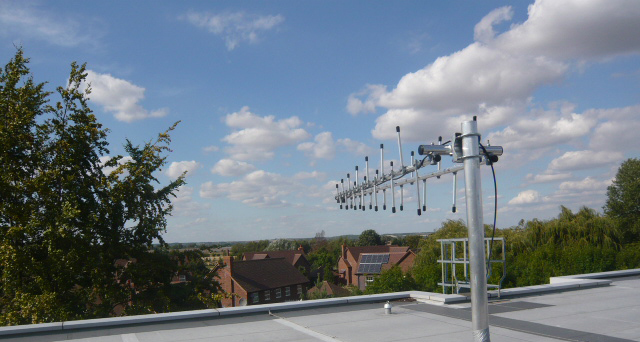

Microsoft, Google and BT will participate in a Europe’s first major trial of white space technology, which Ofcom hopes will improve spectrum efficiency as greater demands are placed on the UK’s airwaves.
Twenty public and private organisations will be involved with the pilot, which will examine the potential uses of white spaces across the country, including dynamic traffic information, rural broadband and smart city applications.
“Access to spectrum is fundamental to the future success of the UK’s digital economy, providing the infrastructure that underpins all wireless communications,” says Ed Richards, Ofcom CEO. “This is an excellent opportunity for the UK to help lead in the world of spectrum and one that could deliver huge benefits to society.”
However because the availability of white space radio spectrum depends on location, power level and the time of day, Ofcom will maintain a database on where the white spaces are and the power level that devices would need to be restricted to if they want to use them.
Google, Nominet, LS telcom, iconectiv, Key Bridge, Fairspectrum and Spectrum Bridge have all expressed an interest in creating and/or testing these databases, which would ensure there is a minimum risk of interference.
As part of the trial, BT, Neul and the Department of Transport will use white spaces to transmit data on traffic congestion and driving conditions to provide information to drivers and improve road safety.
Microsoft will see how white spaces can be used to provide Wi-Fi for people in Glasgow, which has the lowest take up of broadband of all the UK’s cities. The company will also work with the University of Strathclyde’s Centre for White Space Communications to deploy sensors that monitor the city’s behaviour.
ISP Click4Internet with its technical partners KTS and SineCom will use white spaces to test rural broadband in areas obscured by thick foliage or challenging geography. White space radio has long been touted as a solution to broadband ‘not spots’ because they can travel long distances and through solid objects.
Ofcom says the trial is one of a number of measures designed to cope with the expected growth in demand for spectrum, fuelled by the popularity of mobile broadband and machine-to-machine (M2M) communications.
“Spectrum is the raw material that will underpin the next revolution in wireless communications,” explains Steve Unger, Ofcom Chief Technology Officer. “In the future it won’t be just mobiles and tablets that are connected to the internet; billions of other things including cars, crops, coffee machines and cardiac monitors will also be connected, using tiny slivers of spectrum to get online.
“This is likely to deliver large benefits to society; however there isn’t an unlimited supply of spectrum to meet this extraordinary demand. This is why we need to explore new ways of unlocking the potential of spectrum – like white space technology – to get the most from this valuable national resource.”
Ofcom launched a consultation into spectrum use last year and has also outlined plans to free up and auction spectrum in the 700MHz band for so-called ‘5G’ services.
What do you know about the Internet of Things? Take our quiz!
Denial from TSMC, after multiple reports it was in talks with Intel over a joint…
CEO Tim Cook talks to Trump official, as IDC notes China's smartphone market growth, and…
Another big name chip maker expects a hefty financial charge, after the US tightened rules…
More bad news for Google. Second time in less than a year that some part…
Federal office that tackled misinformation and disinformation from hostile nations is closed down, after criticism…
After Nvidia admits it will take $5.5 billion charge as Trump export limits of slower…